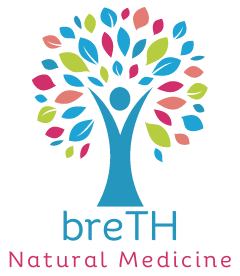Oh, that warm cup of caffeine that delights the soul first thing in the morning!
Many individuals rely on caffeinated beverages to get them started in the morning and to keep them going throughout the day. If that’s the case for you, then it’s time to find out why your body is not producing enough energy on its own. However, if you are in good health and enjoy a cup of coffee or tea each day, then you can also benefit from the health-promoting constituents these caffeinated beverages offer.
The following is a list of various caffeinated drinks with descriptions of their caffeine content and guidelines to consider to give you the greatest health benefits.
COFFEE
- Caffeine content: ~95-120mg per 8 ounces
- Guidelines:
- Purchase only certified organic coffee or local coffee that is from a well-trusted source as conventional coffee beans are heavily sprayed with pesticides and can contain mold toxins.
- Purchase whole coffee beans and opt to grind them at home or in the store and refrigerate the coffee thereafter for optimal freshness.
- Consider shade-grown and Arabica coffee as they are less acidic coffees and easier on the digestive tract.
- Avoid instant coffees as much as possible, even the organic ones as the process of making them produce higher amounts of a chemical called acrylamide.
- Also avoid decaf coffee, as the beans are often processed with chemical solvents that are harmful to your health. Look for water-only extraction methods for decaffeinated coffees. Additionally, decaf coffee can still contain 3-12mg of caffeine per cup so avoid drinking it in the later hours of the day!
- Make your cup of joe a vegan bulletproof coffee by adding coconut butter, coconut oil, and/or nut milk of your choice instead of creamer.
- For additional health benefits, add in any of the following items that seem appealing to you: cinnamon, cardamom, turmeric, vanilla, collagen protein, raw cacao, adaptogenic herbs (maca, Rhodiola, Asian ginseng, astragalus, etc), and medicinal mushroom extract powder.
- Instead of sugar, opt for raw organic honey, stevia, xylitol, or organic maple syrup on occasion.
BLACK TEA
- Caffeine content: ~40-75mg per 8 ounces
- Guidelines:
- Purchase organic black tea to avoid pesticides.
- Organic loose-leaf tea is the best option as many tea bags are treated with an industrial solvent called epichlorohydrin which is a cancer-causing agent. Otherwise, if purchasing tea bags, look for brands that make bags from cellulose, hemp, or cotton.
- Jazz up your tea with other natural flavors like lemon, ginger, cardamom, coconut oil, or nut milk of your choice.
MATCHA GREEN TEA
- Caffeine Content: ~30-70mg per 8 ounces
- Guidelines:
- Matcha green tea helps with maintaining a focused yet calm mental state due to the amino acid L-theanine. When compared with regular green tea, matcha green tea has superior antioxidant activity due to its high EGCG content. Matcha has also been compared to blueberries and pomegranates and has been found to be superior in antioxidants as well.
- Purchase organic matcha green tea only.
- Look out for the following characteristics to determine high-quality matcha tea:
- The color should be a vibrant green
- The tea should have a slightly sweet and creamy flavor (use a water temperature of 175-185 F to avoid bitterness)
- The texture should be fine
- It needs to be shade grown for 21 days
- Avoid matcha that is packed inside an aluminum or plastic pouch.
- Purchase matcha that is derived from Japan.
- Buy ceremonial grade for the highest quality matcha
- Don’t purchase any matcha green tea with added flavorings, unless it is just spiced like turmeric
- Make it into a latte with warm almond or coconut milk
ORGANIC GREEN TEA
- Caffeine content: ~30-50mg/8 ounces
- Guidelines:
- Again, choose organic, loose-leaf tea as the first option when you can and also look for fair-trade certifications
- High-quality green tea should have bright green leaves – avoid tea that looks crumbly
- It should taste flavorful, smooth, and refreshing, sometimes with a slightly sweet flavor
- Japan has the highest quality green teas
- Make sure to use spring or filtered water and avoid distilled or reverse osmosis water when making the tea
- Steep for 3-5 minutes
- Green tea has high antioxidant activity and can improve memory and mood, increase metabolism, and reduces inflammation, to name a few benefits.
KOMBUCHA
- Caffeine content: 10-25mg/8 ounces
- Guidelines:
- Make sure it is brewed in a glass container
- There shouldn’t be a probiotic count on the label if purchasing store-bought brands
- Make sure it’s not pasteurized—look for Vitamin B as it should be listed if it is not pasteurized.
- Kombucha has sugar added for the fermentation process, but make sure it’s not more than 10 grams of sugar.
- Avoid any brands that come with natural flavors or any other additives other than tea, water, yeast, and sugar.
- Look for “naturally fermented” on the label
I suggest switching up your form of the caffeinated beverage every now and then to gain the various antioxidants of each type of beverage. You can also opt for herbal teas and coffee alternatives that have great health benefits. Some herbal teas that are wonderful for you are chamomile, mint, and rooibos; coffee alternatives like roasted dandelion root tea not only taste similar to coffee but also provide benefits like facilitating detoxification of the liver.
Enjoy your brew and don’t overdo!
